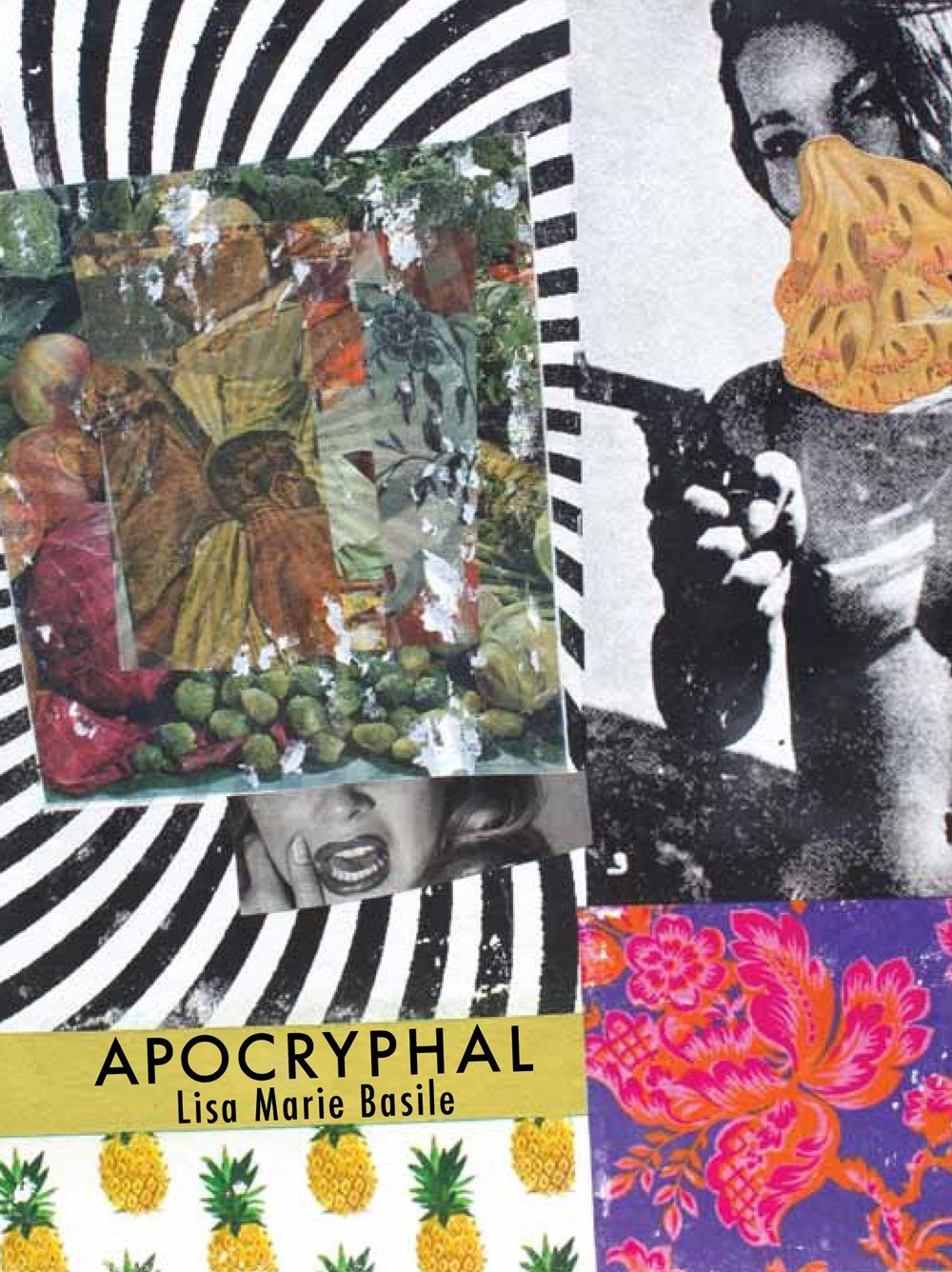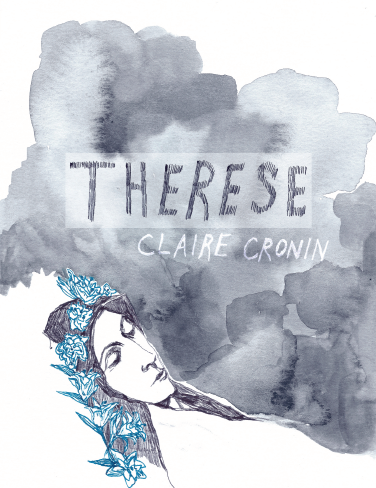Apocryphal by Lisa Marie Basile
– Reviewed by Becky Varley–Winter –
Lisa Marie Basile’s Apocryphal opens with an epigraph from Anaïs Nin:
And in his eyes he had the look of the cat who inspires a desire to caress but loves no one, who never feels he must respond to the impulses he arouses.
It’s not clear if this seductiveness applies more to the ‘I’ of the speaker or the men in this work, this ability to be alluring without feeling obligated. Apocryphal is sharp, questing, intelligent, highly charged, reflective, lonesome, troubling. Sex is used provocatively, not bluntly, to turn the key in central questions or quests: Basile has suggested that ‘I wanted to create a world that was as superficial and dramatic and broken as I felt and was taught when I was younger, insecure, and frightened’. This undertow of sadness drags on lust, which comes and goes in waves. As with Anaïs Nin’s diaries, Basile’s collection is soaked in and preoccupied with sex, not only as titillation (although there is that), but as a way of seeking and/or losing yourself, disappearing and appearing in another person’s gaze, accurately or otherwise. While both feature an exploratory erotic voice, Basile’s work is more quietly knowing than Nin’s, which (I think) invests in her own self-mythology to a greater extent. Apocryphal also reminds me of the bold, innovative lyricism of Mina Loy.
Noctuary Press specialise in non-generic works by female writers that resist categorisation; appropriately, apocrypha are hidden texts of unknown authorship, parts of religious books not regarded as authentic/canonical. Basile’s work, fluxing/flexing between free verse and prose, seeks the self as another kind of hidden text. Her speaker is unable to determine how much she has become pure spectacle, like a Lana Del Rey of the page. Overexposed at a young age, she has trouble distinguishing herself from the roles she plays or is asked to play:
I am not like everyone else’s child. i learned early of toil &
kink: little girl bambi girl sprawl for me.
& I learned early all the men who want bambi.it might be that I have become bambi.
It might be the truth, or not. that is up to you.
This ‘you’ could be inside the poem, but could also be the reader, implicitly asked to bear her story: ‘I’m a gradient of you now’. I found myself reading in the hope of her happy ending: it’s a page-turner of sorts. Gaps are used as if to separate different viewpoints, pausing and considering.
Many of the poems take place on hot beaches, sometimes playing Venus:
when I sleep nude on sands, I open
my mouth so a whole man could get in, so you
could get in,
Female sensuality figures vividly, both as ‘an immovable desire to be filled and poured’ and more actively, as a ‘high valley fire’, while a man is ‘all that brushwood, / all that body’. There is unabashed appetite – sex isn’t only, or always, disturbing – and a certain swagger (‘I am not a skinny girl. I will destroy you’). However, she also writes of imposed shame: ‘this is a / portrait of bad girls’. Rosary beads, veils, confession, simultaneously damn and fuel sex through repression, ‘the religion of fuck’. Basile pitches her fucks about right: not too many, well placed, so they don’t feel like empty shock tactics. They’re substantial.
Sexuality becomes a role put on and taken off, sometimes with a frisson, sometimes with loneliness and dissociation:
but I don’t own my own sexuality
it is borrowed from somewhere bad,
a beach side-show of bouffant & glitter
breasts propped up behind a taupe changing curtain & I strut
out as though I own the place
only I don’t own a thing
even my purse is fabricated
from lies
I go down on him like a perfumed ghost
& in an instant, it’s over
I am left in my own path
I’d cut out ‘from lies’ as this is already implicit in ‘fabricated’, but ‘like a perfumed ghost’ is especially sharp, disappearing in plain sight, feeling like a diffusion of scent and breath. This reaches a point at which ‘I exist outside my own life’:
it hurts to speak beneath this bustier
but if I take it off,
it just hurts.
Roughly speaking, the first part of the collection (‘genesis’) feels the most dedicated to performance and spectacle. In the latter two parts of the book, there is a quieter sense of trying to ‘take off the bustier’ and discover an underlying self, especially in childhood memory:
me in cotton contorted staring through windows
like paper, folded up to contain the secret,
the me that preexisted this obscene heartache,
the me that would not kneelnot even in sand.
**
where do we find us? where do we go?
before sex became the gloss
spread overthe meat.
Here, due to the line break, either the child or the windows she looks through could be ‘like paper’, folded to contain the secret of herself. Does she exist inside or outside of her body? This search for lost ground is compelling and at times painful. E.g. on sexual coercion:
you could hear the waves come in like a man
petting you at midnight. It won’t stop
unless you give in and even then it won’t stop.
The full stop after ‘it won’t stop’ feels like a trap. However, while entirely willing to make the reader uncomfortable, this is not a misery memoir. Loss is there, but is not the main focus. The core questions might be: Who am I now? What do I want? How do I live with the past? The difficult process of answering these questions is driven by desire as much as pain, saying I want, I want, or I don’t want:
I don’t want to be loved despite my history,
I want absolution, someone to observe my fitting-into and
growing-out-of
This story does not feel entirely resolved – it is left in productive flux – but there is a kind of affirmation: ‘this is my body. / this is my body. […] but, we are not our bodies.‘ This is a very strong, affecting and absorbing book. While elements of Apocryphal might feel repetitive, it’s always moving beneath this, working and working. The quotations I’ve given are some of the most blunt moments; it is also musical, dramatic and allusive, with scattered rhymes and the feel of sand after sun, as if emitting its own secondary heat. Basile’s writing has a pithiness and substance that works productively against the grain of its dispersed form, stopping it from drifting. While interested in superficiality, the work itself is not superficial. It glows through the dark.





